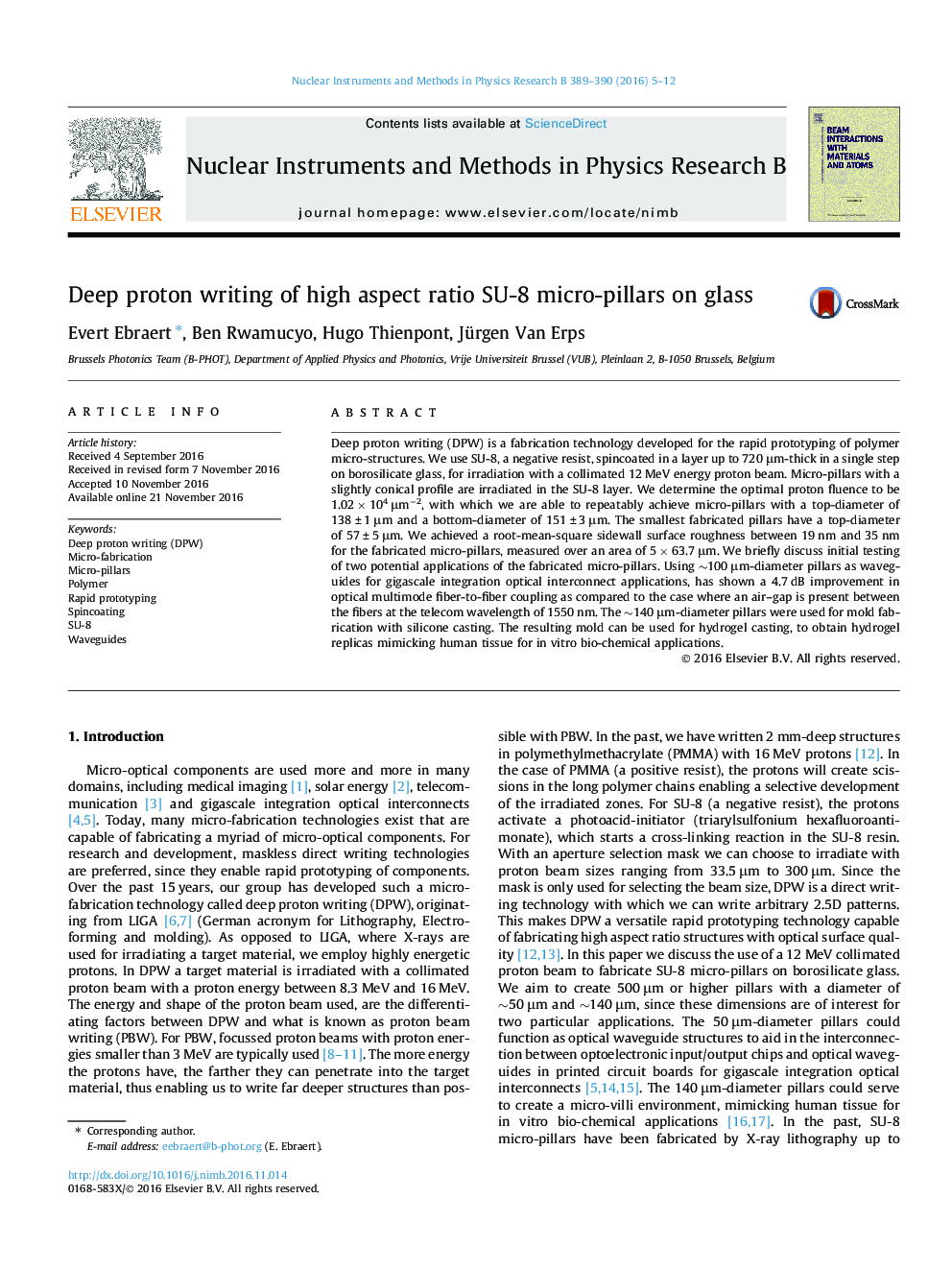| Article ID | Journal | Published Year | Pages | File Type |
|---|---|---|---|---|
| 5467944 | Nuclear Instruments and Methods in Physics Research Section B: Beam Interactions with Materials and Atoms | 2016 | 8 Pages |
Abstract
Deep proton writing (DPW) is a fabrication technology developed for the rapid prototyping of polymer micro-structures. We use SU-8, a negative resist, spincoated in a layer up to 720 μm-thick in a single step on borosilicate glass, for irradiation with a collimated 12 MeV energy proton beam. Micro-pillars with a slightly conical profile are irradiated in the SU-8 layer. We determine the optimal proton fluence to be 1.02 Ã 104 μmâ2, with which we are able to repeatably achieve micro-pillars with a top-diameter of 138 ± 1 μm and a bottom-diameter of 151 ± 3 μm. The smallest fabricated pillars have a top-diameter of 57 ± 5 μm. We achieved a root-mean-square sidewall surface roughness between 19 nm and 35 nm for the fabricated micro-pillars, measured over an area of 5 Ã 63.7 μm. We briefly discuss initial testing of two potential applications of the fabricated micro-pillars. Using â¼100 μm-diameter pillars as waveguides for gigascale integration optical interconnect applications, has shown a 4.7 dB improvement in optical multimode fiber-to-fiber coupling as compared to the case where an air-gap is present between the fibers at the telecom wavelength of 1550 nm. The â¼140 μm-diameter pillars were used for mold fabrication with silicone casting. The resulting mold can be used for hydrogel casting, to obtain hydrogel replicas mimicking human tissue for in vitro bio-chemical applications.
Related Topics
Physical Sciences and Engineering
Materials Science
Surfaces, Coatings and Films
Authors
Evert Ebraert, Ben Rwamucyo, Hugo Thienpont, Jürgen Van Erps,
